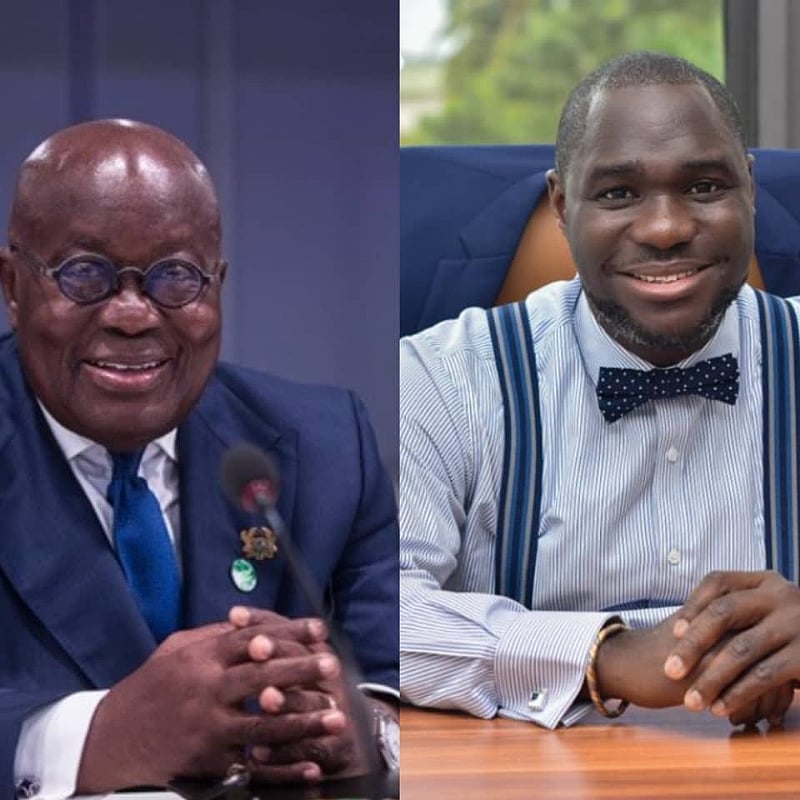Dr. Palgrave Boakye Danquah, the New Patriotic Party’s spokesperson on security and governance, has delivered a glowing endorsement of President Nana Addo Dankwa Akufo-Addo’s leadership, positioning him as a standout figure in Ghana’s Fourth Republic. This commendation, delivered during a televised discussion, emphasized the President’s decisive leadership style and highlighted his substantial contributions to the nation’s development. Dr. Danquah’s praise underscored a deep admiration for the President’s firmness and effectiveness, particularly within the context of the Ninth Parliament, a period marked by unique political challenges and dynamics. He framed President Akufo-Addo’s tenure as a period of significant progress and impactful leadership, positioning him as a key figure in shaping modern Ghana.
Dr. Danquah’s commentary extended beyond mere praise to encompass a broader analysis of the political landscape, particularly focusing on the dynamics within Parliament. He specifically addressed the National Democratic Congress’s (NDC) majority status, cautioning against complacency and drawing parallels to previous instances of NPP majorities. This warning served as a reminder of the fluidity of political power and the potential for shifts in public sentiment. By invoking past experiences, Dr. Danquah underscored the importance of remaining responsive to the electorate and avoiding the pitfalls of overconfidence, implicitly suggesting that the NDC’s current dominance should not be taken as a guarantee of future success.
The spokesperson’s emphasis on the fluctuating nature of political allegiances within Ghana reveals a keen awareness of the electorate’s capacity for dramatic shifts in support. He portrayed the Ghanaian voter as discerning and capable of swinging their allegiance between parties based on performance and perceived responsiveness to their needs. This analysis positions the political landscape as dynamic and competitive, where no single party can afford to become complacent, and where maintaining public trust requires consistent effort and demonstrable results. Dr. Danquah’s observations underscore the importance of continuous engagement with the electorate and the need for political parties to remain attuned to the evolving needs and aspirations of the Ghanaian people.
Dr. Danquah’s comments can be interpreted as a strategic move to both bolster President Akufo-Addo’s legacy and to position the NPP for future electoral success. By highlighting the President’s achievements and strong leadership, he seeks to solidify the NPP’s image as a party capable of delivering positive outcomes for the nation. Simultaneously, by cautioning the NDC against complacency, he subtly underscores the potential for a future power shift back to the NPP. This dual approach suggests a calculated effort to manage public perception and to frame the political narrative in a manner favorable to the NPP, setting the stage for future campaigns and electoral contests.
Expanding on the theme of political dynamics, Dr. Danquah’s analysis implicitly acknowledges the complexities of governing within a parliamentary system where power is not always concentrated in a single party’s hands. His remarks about the NDC’s majority suggest an understanding of the challenges and opportunities that arise from navigating a political landscape where negotiation and compromise are essential for effective governance. This nuanced perspective highlights the importance of inter-party dialogue and cooperation, even amidst partisan competition, for the smooth functioning of the democratic process. Furthermore, it suggests that the NPP, despite being in the minority, intends to play an active and influential role in shaping policy and holding the ruling party accountable.
In essence, Dr. Danquah’s public statements serve as a multi-layered commentary on the current political climate in Ghana. They offer both praise for his party’s past leadership and a cautionary message for the current ruling party, all while subtly positioning the NPP for future success. His remarks underscore the dynamic and ever-shifting nature of Ghanaian politics, emphasizing the importance of responsiveness to the electorate, the need for effective leadership, and the critical role of continuous engagement in a competitive political landscape. This commentary provides valuable insights into the ongoing political discourse within Ghana and offers a glimpse into the strategies and perspectives shaping the nation’s political future.


